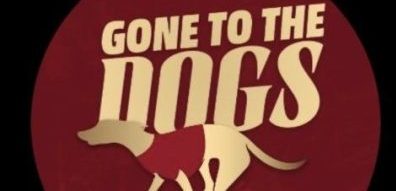1993 Yarmouth need a metal detector to find a handful of tin tacks that had been thrown onto the track between the third and fourth bends. Racing manager Dick Keable believes there is a connection with an incident where motor oil was smeared on the window of his pet shop. He believes the incident “is probably not greyhound related but may be connected with a domestic incident involving a permit trained greyhound.”
2011 The Irish Coursing Club are hit with a €640,000 damages bill following defeat in a court case over access to a piece of land alongside their head offices in Davis Road, Clonmel.
1967 The NGRC announce that in future no trainer will be allowed a ‘full’ trainers licence if they earn their living outside the greyhound industry. The move is intended to tighten up security at private trainers kennels with the vast majority of recent doping cases having come from private kennels.
1992 Figures released by American track promoters show Southland was the country’s most successful track in 1991 with 1.5m punters betting in excess of £100m on the tote over the course of the 406 meetings.
1959 A national Sunday newspaper reports the plight of three ex-racers who had been abandoned by their owner and ended up in Battersea Dogs Home. Further investigations by the NGRC reveal that the dogs were almost certainly not racing stock. Nevertheless, the dogs were homed by greyhound folk. The latter part of the story was, unsurprisingly, never published.
1992 Farloe Melody becomes the first dog to break 29.00 at Shelbourne Park on four consecutive occasions on is his way to landing his second Easter Cup.

1987 Nicki Adams’ Night Trooper (Portrun Flier-Suir Orla), wins his second major final, the Pall Mall at Oxford. The 1996 Gymcrack winner at Hackney had also run second in the same year’s English Derby, beaten by another British bred, Shanless Slippy.
(l-r) Karl Rugg, George Adams, Patrick Rugg and Nicki Adams holding Night Runner – photo Steve Nash.
1976 Paradise Peg (Commutering-Rit Peg Princess) sets a new Catford 555m track record when winning the Greenwich Cup. Ted Griffin’s brindle beats Ka Boom and Angel Eyes in 34.82.
2010 A Saturday BAGS card at Crayford has an unusual distraction when an air ambulance lands on the in-field to evacuate an injured workman from the nearby supermarket.
1968 White City punters are left in a spin when Derby favourite Yellow Printer (2-5f) is beaten five lengths by relatively unknown kennelmate Camira Flash in the semi finals of the Wood Lane Stakes at White City. The John Basset trained Flash (11-2) clocks the fastest time of the year for the 525 yard course, 28.54. The pair meet in the £300 final just two nights later. Yellow Printer is backed from 5-4 to even money and wins by a length in 28.91. Flash is beaten seven lengths in fourth.
1992 American magazine Greyhound Update produces its annual ‘All-World’ teams to nominate the eight best sprinters, middle distance and marathon runners. Unsurprisingly, and predictably from a country that nominates its leading baseball competition as ‘the world series’, 21 of the 24 runners are American. The three non-Yanks are Austalian sprinter Highly Blessed, and British based Dempseys Whisper (middle distance) and marathoner Bobs Regan.
2011 Rockview Head, eliminated in the semis of the €15,000 to winner Juvenile Classic at Tralee, is re-instated to the final following a withdrawal through lameness. The Peter Cronin trained dog duly wins the final at 5-1.
1990 Bord nag Con figures for 1989 show the average number of racegoers per meeting to have been 303. The figures are identical to the previous year but represent a 55% fall in 15 years.
1947 Eastville (Bristol) report that their entire kennel strength of 137 dogs are sound with none on the sick list. The news wasn’t as good at West Ham- three of the six trainers were in bed with flu.
1993 Irish bred Tinahue Knock (Knockash Rover-Black Misstres) is voted the 1992 South Australian Dam of the Year. Knock is a sister to Tinahue Miss, whose sons Chin No Nose and Cannongrand hold the 318m and 484m track records at Henlow.
1981 Southend bookmakers wipe their boards and refuse to form a market after the Albert Skelton trained The Other One is heavily backed in the first race. The dog wins easily. Of the main off-course layers, only Coral are prepared to take Southend bets.
1959 Actor and comedian Syd James, currently working on the Hancock series, decided to back runners trained by namesake Brighton trainer Arthur Hancock, on his visit to the South Coast stadium. His reward was three winners from eight races.













